
In computational complexity theory,a computational problem H is called NP-hard if,for every problem L which can be solved in non-deterministic polynomial-time,there is a polynomial-time reduction from L to H. That is,assuming a solution for H takes 1 unit time,H's solution can be used to solve L in polynomial time. As a consequence,finding a polynomial time algorithm to solve a single NP-hard problem would give polynomial time algorithms for all the problems in the complexity class NP. As it is suspected,but unproven,that P≠NP,it is unlikely that any polynomial-time algorithms for NP-hard problems exist.

David van Dantzig was a Dutch mathematician,well known for the construction in topology of the solenoid. He was a member of the Significs Group.
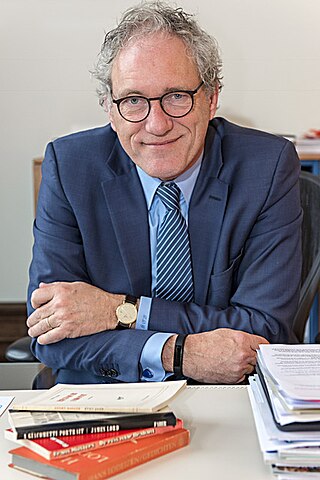
Thomas Carolus de Graaf is a Dutch politician of the Democrats 66 (D66) party and jurist. He is the Vice-President of the Council of State since 1 November 2018.
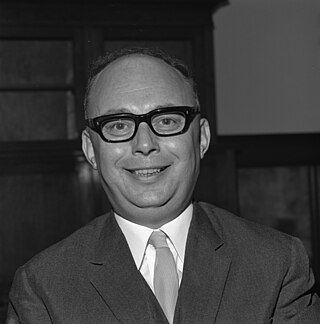
Henri (Hans) Theil was a Dutch econometrician and professor at the Netherlands School of Economics in Rotterdam,known for his contributions to the field of econometrics.

Hendrik Willem Lenstra Jr. is a Dutch mathematician.
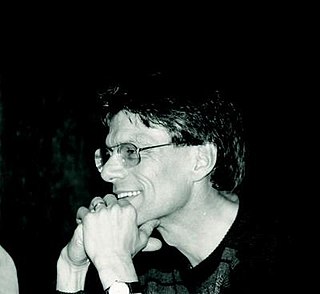
Laurens de Haan is a Dutch economist and Emeritus Professor of Probability and Mathematical Statistics at the Erasmus University Rotterdam,specializing in extreme value theory.
Jan Hendrik van Schuppen is a Dutch mathematician and Professor at the Department of Mathematics of the Vrije Universiteit,known for his contributions in the field of systems theory,particularly on control theory and system identification,on probability,and on a number of related practical applications.
Eugene Leighton (Gene) Lawler was an American computer scientist and a professor of computer science at the University of California,Berkeley.
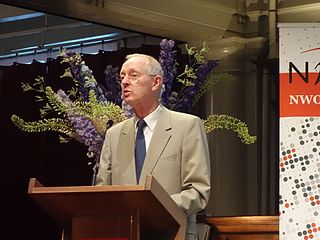
Jan Karel Lenstra is a Dutch mathematician and operations researcher,known for his work on scheduling algorithms,local search,and the travelling salesman problem.
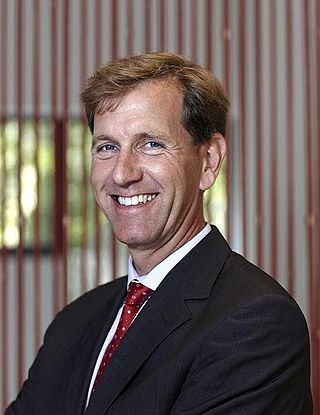
Wiebe Draijer is a Dutch engineer,civil servant and management consultant who served as Chairman of the Social and Economic Council from 2012 to 2014. Since 1 October 2014,he has been CEO of the Rabobank.
Econometric Institute at the Erasmus University Rotterdam is a leading research institute in the fields of econometrics and management science in the Netherlands. The Institute offers advanced education in econometrics. It was founded in 1956 by Henri Theil in cooperation with Jan Tinbergen.
Jan Sandee was a Dutch economist,consultant and Professor of Econometrics at the Netherlands School of Economics,Rotterdam,who headed the Econometric Institute from 1966 to 1971.
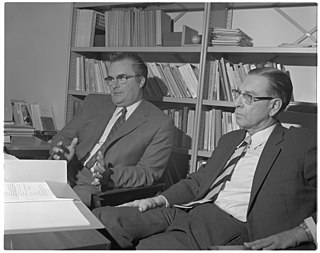
Willem Hendrik Somermeyer was a Dutch economist,Professor in Econometrics at the Erasmus University Rotterdam,and member of the Royal Netherlands Academy of Arts and Sciences,particularly known for his consumption-savings model.
Teunis (Teun) Kloek is a Dutch economist and Emeritus Professor of Econometrics at the Erasmus Universiteit Rotterdam. His research interests centered on econometric methods and their applications,especially nonparametric and robust methods in econometrics.
Gijsbert (Gijs) de Leve was a Dutch mathematician and operations researcher,known for his work on Markov decision process. Gijs de Leve is considered the founder of operations research in the Netherlands.
Anthonius Wilhelmus Johannes (Antoon) Kolen was a Dutch mathematician and Professor at the Maastricht University,in the Department of Quantitative Economics. He is known for his work on dynamic programming,such as interval scheduling and mathematical optimization.

Adrianus Willem "Aad" van der Vaart is a Dutch professor of Stochastics at the Delft Institute of Applied Mathematics at Delft University of Technology.

In Pursuit of the Traveling Salesman:Mathematics at the Limits of Computation is a book on the travelling salesman problem,by William J. Cook,published in 2011 by the Princeton University Press,with a paperback reprint in 2014. The Basic Library List Committee of the Mathematical Association of America has suggested its inclusion in undergraduate mathematics libraries.
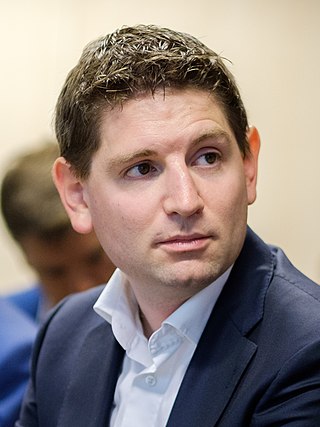
Jan Maarten Paternotte is a Dutch politician of the Democrats 66 (D66). He has been a member of the House of Representatives since 23 March 2017,and he served as his party's parliamentary leader from January 2022 until December 2023.













